

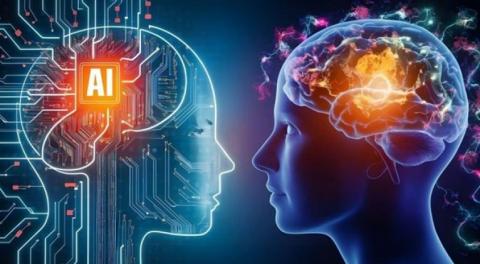
In this era of artificial intelligence (AI), cultural identities have reached a turning point because, far from being a mere technological add-on, AI is reshaping the way individuals and communities understand and express their roots, their traditions, and beliefs.
Thus, both enthusiastic and suspicious voices are raised when it comes to the topic of cultural identities, understood as the development of narratives, symbols, and practices that define belonging to a particular group, integrating memories, founding myths, and shared references.
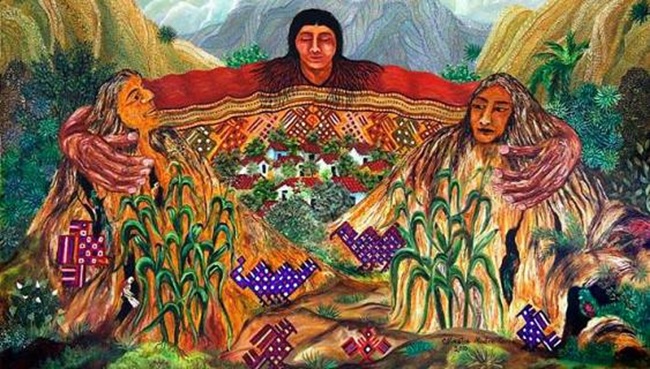
These words might have too much of an academic taste, but we are talking here about anchors and essences that may be in danger.
Of course, not everything is absolutely dramatic. Undoubtedly, AI facilitates access to dispersed and poorly documented cultural heritage. Platforms based on generative models can translate texts into indigenous languages or simulate reconstructions of archaeological sites, fostering interest in traditions at risk of vanishing.
With the help of AI, papyrologists were able to decipher passages from a scroll charred by the eruption of Mount Vesuvius in 79 AD, which until recently was considered illegible.

Furthermore, from an anthropological perspective, these digital resources expand the possibilities for research and community participation, allowing descendants of diasporas to reconnect with their origins without the need for costly travel or external intermediaries.
This is without forgetting that AI applied to virtual museums and immersive experiences (augmented and virtual reality) enhances intergenerational learning and identity pride among young people who might otherwise lose their connection to their traditions.
But the strawberry color begins to fade on this canvas when one stops to reflect on the contribution AI makes to the reproduction of stereotypes and cultural asymmetries.
A recent report led by Dr. Margaret Mitchell and her team at Hugging Face documents (https://elpais.com/tecnologia/2025-06-24/la-ia-ayuda-a-diseminar-estereo...) how large linguistic models replicate and amplify gender, ethnic, and nationality biases in multiple languages, especially those underrepresented on internet.
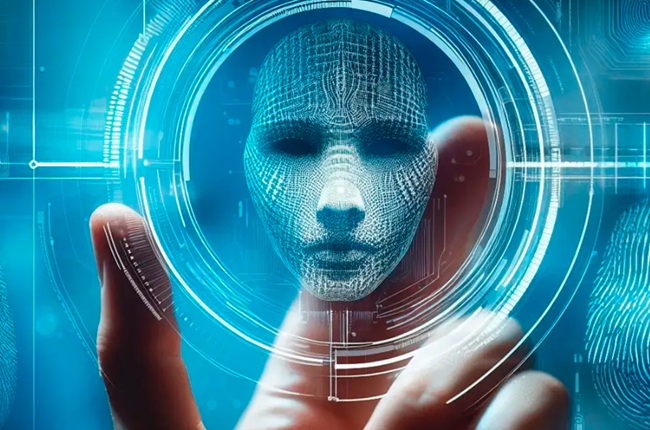
Dr. Mitchell, who also holds a Master Degree in Computational Linguistics from the University of Washington and a pioneer in the ethics-AI pairing, asserts that "AI incorporates stereotypes about people from what people say on internet, and then uses them as if they were part of the world's general knowledge."
It's about perpetuating prejudices, also in the digital world, that reinforce social hierarchies and tend to further marginalize vulnerable communities, making it difficult to fully recognize them in virtual and real spaces.
This, in addition to the uniformity of recommendation algorithms on social media, tips the balance toward homogenizing tastes and narratives, underestimating the necessary cultural diversity and fostering a certain global conformity with what preexists.
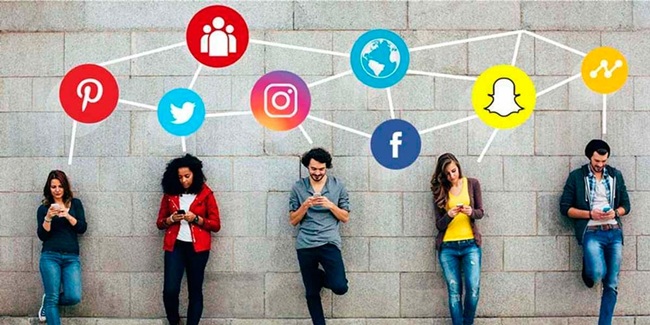
Critics of the concept of the technoself or the technological self—based on the idea that technology not only mediates our interactions but is also part of the construction of ourselves, our identity—emphasize how generative AI plays a role in the mediations that shape subjectivities, with the consequent ethical and social risks.
Because modeling or reshaping ways of thinking and acting based on AI suggestions and its algorithms, consuming what that entity deems "appropriate" or "best," can not only nullify autonomy, it also blurs the authentic and genuine aspects that each person could contribute to others and to themselves.
ChatGPT itself point out in this regard to CubaSí that "Digital platforms not only store memories, they also reinterpret them. By uploading photos, tagging friends, and receiving likes, social media validates some versions of ourselves and discards others. In this regard, technology provides a script—a narrative framework—in which we learn to tell and show ourselves. This script does not come from us, but from algorithmic design: what stories are promoted, what discourses are silenced, what symbols become popular."
It might resemble, at worst, Dr. Jekyll and Mr. Hide tugging at a soul, but the truth is that, going beyond any dystopia, the construction of identities no longer seems to be exclusively a human endeavor.

A gap that goes beyond technology
To the above and even to the promise of AI as a tool for cultural revitalization adds to the deep technological gap that marks the world today.
According to UNESCO's "The State of Broadband 2024" report (updated on March 4, 2025), 2.6 billion people remain disconnected, equivalent to 65% of the population of the least developed countries, where only 35% are online.
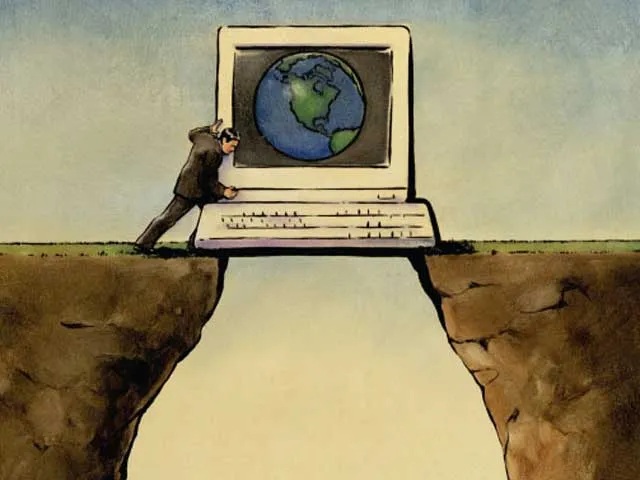
Digital exclusion not only deprives these communities of platforms for documenting and disseminating their heritage, but also limits their access to the AI tools necessary to generate their own content and thus contribute to their own identity construction.
When, according to UNESCO, only 36% of the African population has broadband and less than a quarter of the world's languages are present in cyberspace, a cultural hierarchy is reinforced in which dominant voices monopolize the global narrative.
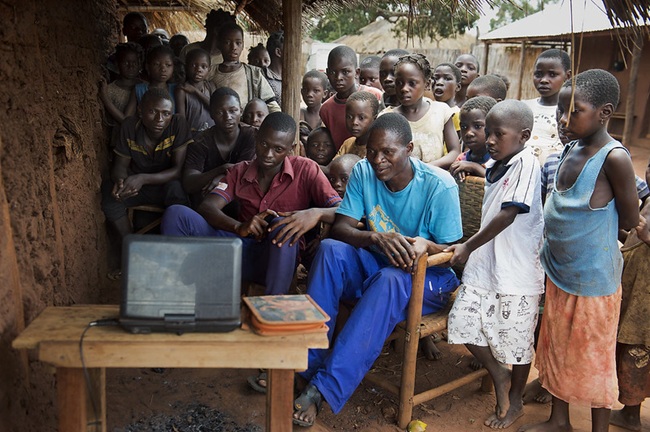
Furthermore, AI tends to concentrate power and resources in the hands of large technology corporations—and vice versa—thus deepening economic polarization. And none of this is figurative: recent estimates indicate that the global digital economy could reach $20 trillion this year.
If digital inclusion is not enabled for the 2.6 billion people currently disconnected, they will increasingly remain on the margins of the knowledge economy and digital cultural production, reinforcing a "technological colonialism" where algorithm design and usage licenses will continue to dictate which narratives are valid and which must remain silent.
In this area, too, gender inequality is notable: There are 264 million fewer women connected online than men.

In recent months, various academic forums and high-level summits have placed the spotlight on how AI redefines the construction and preservation of cultural identities.
Last February, the Artificial Intelligence Action Summit, co-chaired by France and India, took place at the Grand Palais in Paris. More than a thousand representatives from governments, international organizations, the private sector, and civil society debated the need for "inclusive and sustainable AI."
There, they emphasized overcoming the digital divide that jeopardizes the voice of underrepresented communities and their ability to construct their own narratives of cultural identity.
By late March, Hong Kong hosted the Second International Symposium on Humanities and Culture: Visions of a Digital Future, which, among other topics, analyzed the role of AI in the transformation of collective memory and warned of the danger of digital narratives being hijacked by hegemonic visions.
These and other recent events demonstrate that, beyond technology, its innovations, and its benefits, AI has become a battleground for the control of cultural narratives and identities, as subtle and intangible as a bit; as dangerous as cutting off our roots.
Translated by Amilkal Labañino / CubaSi Translation Staff